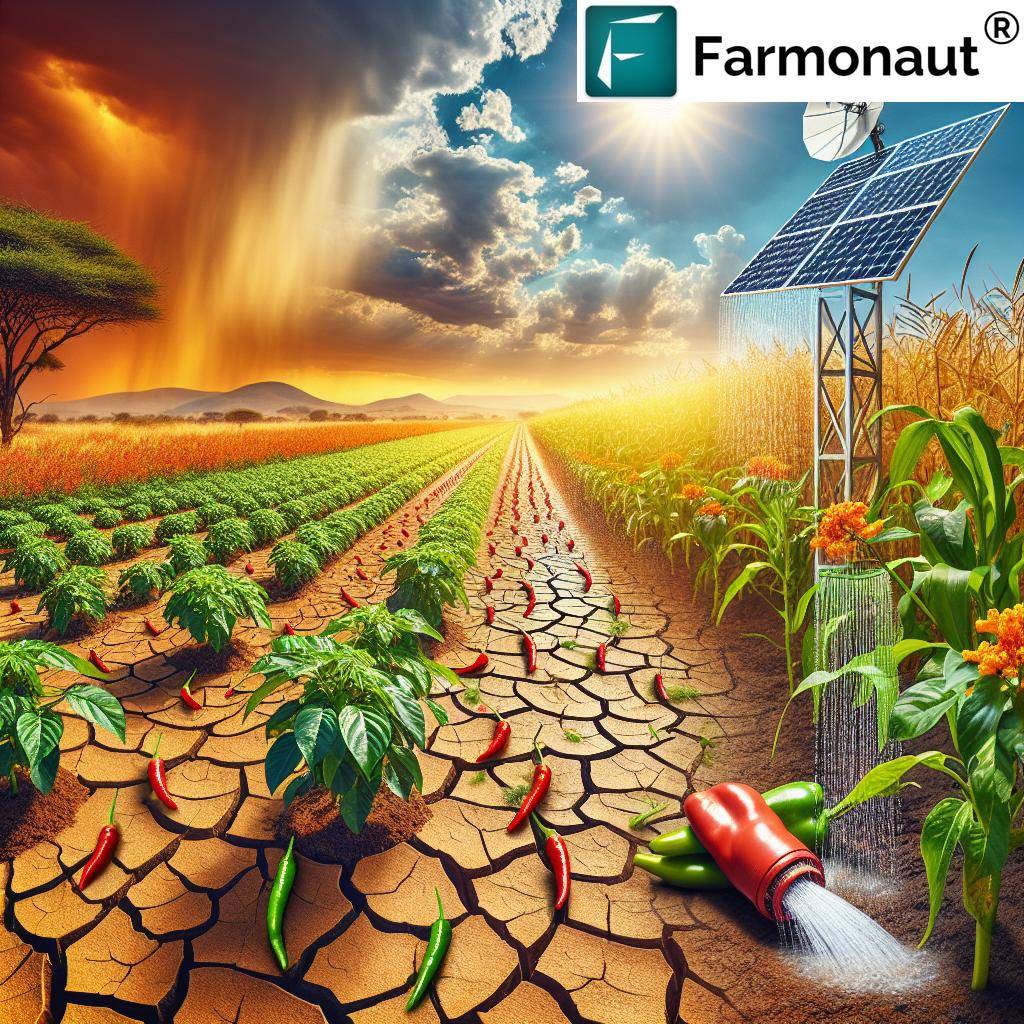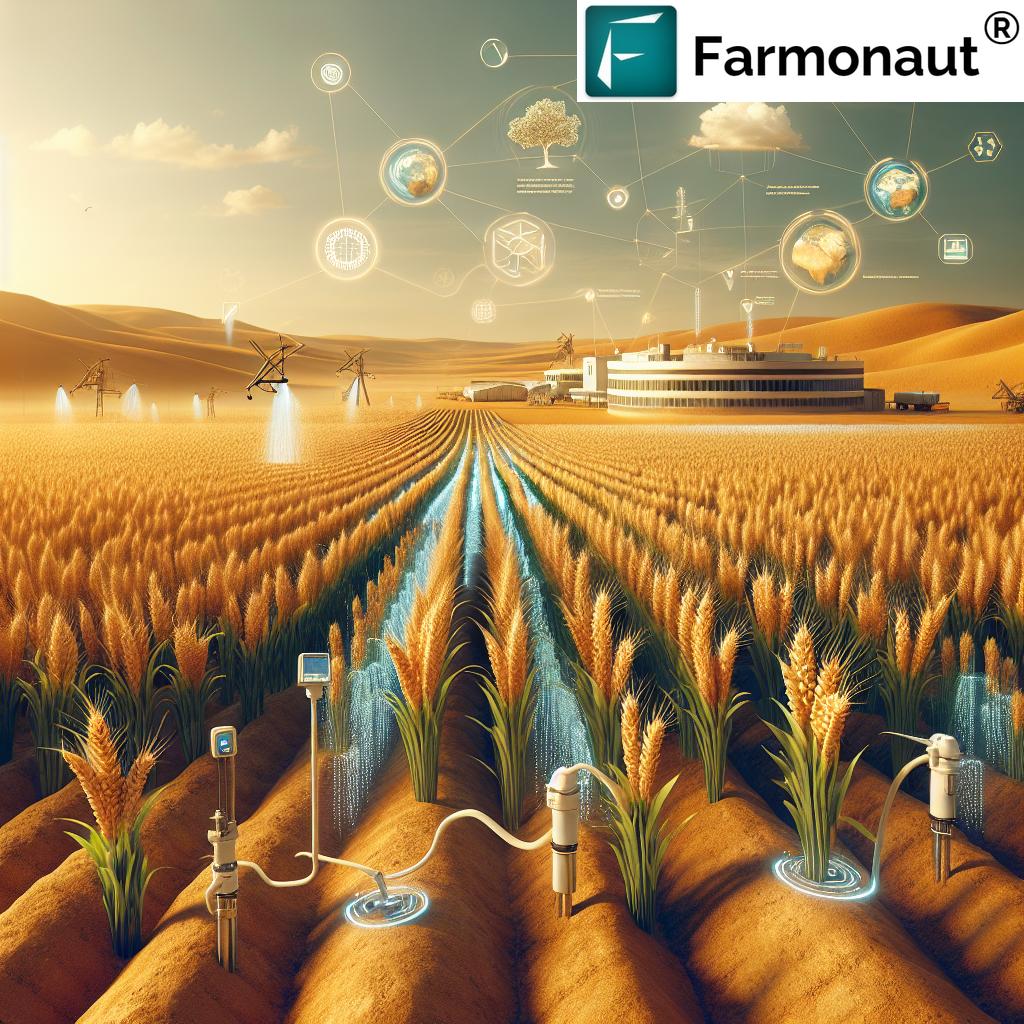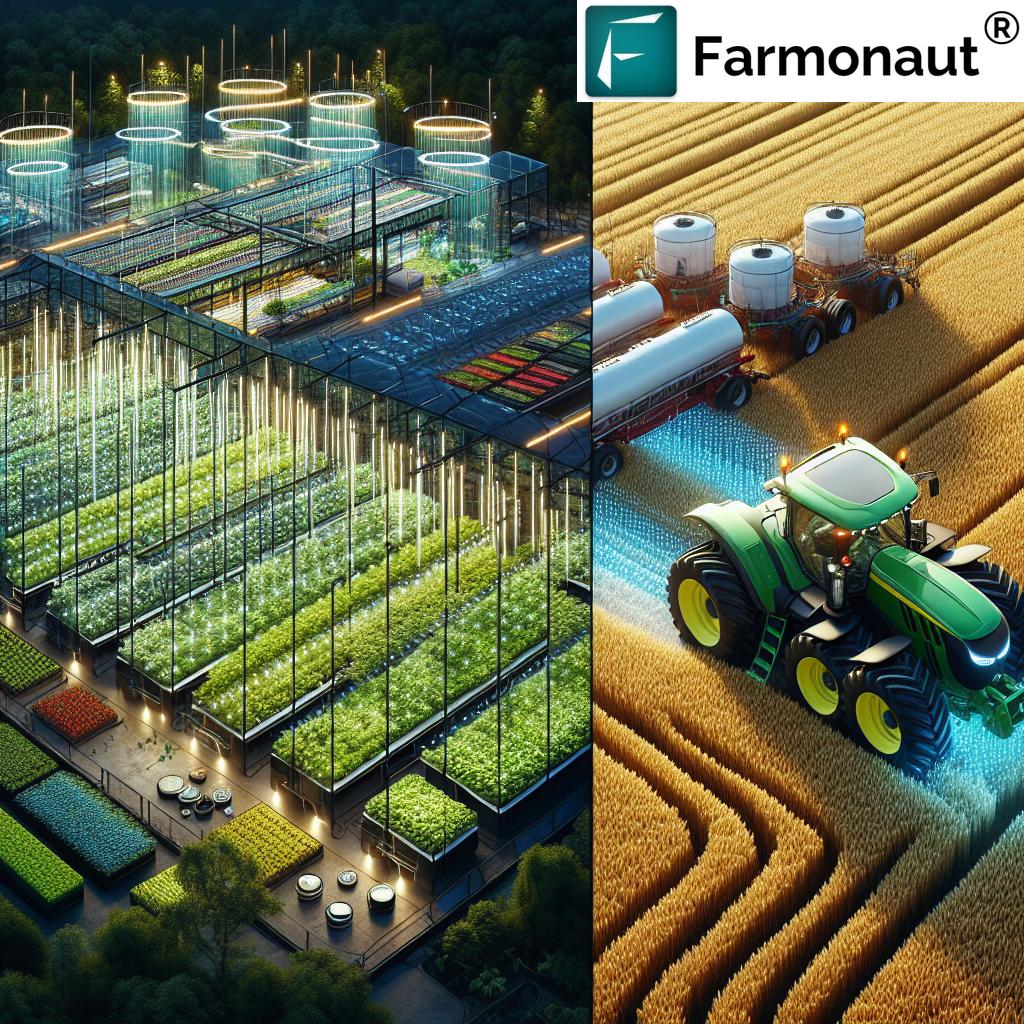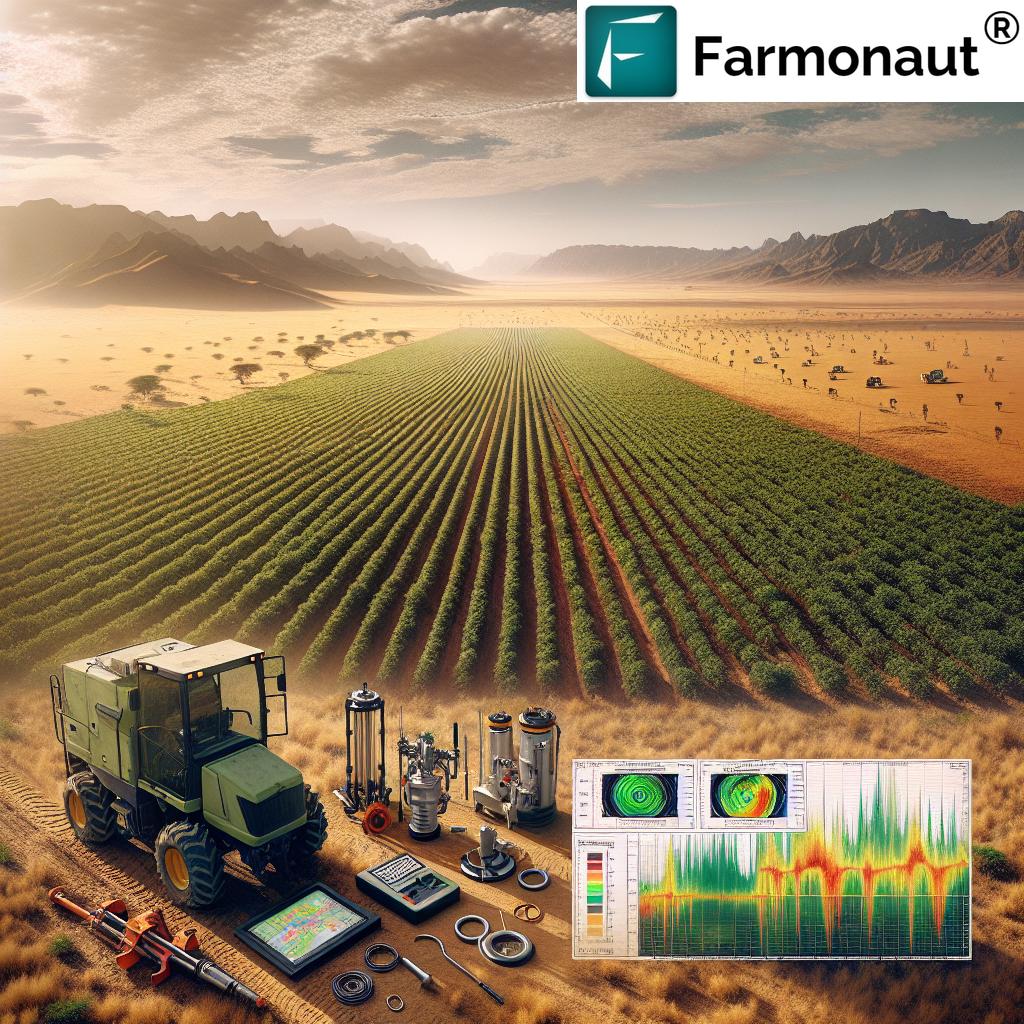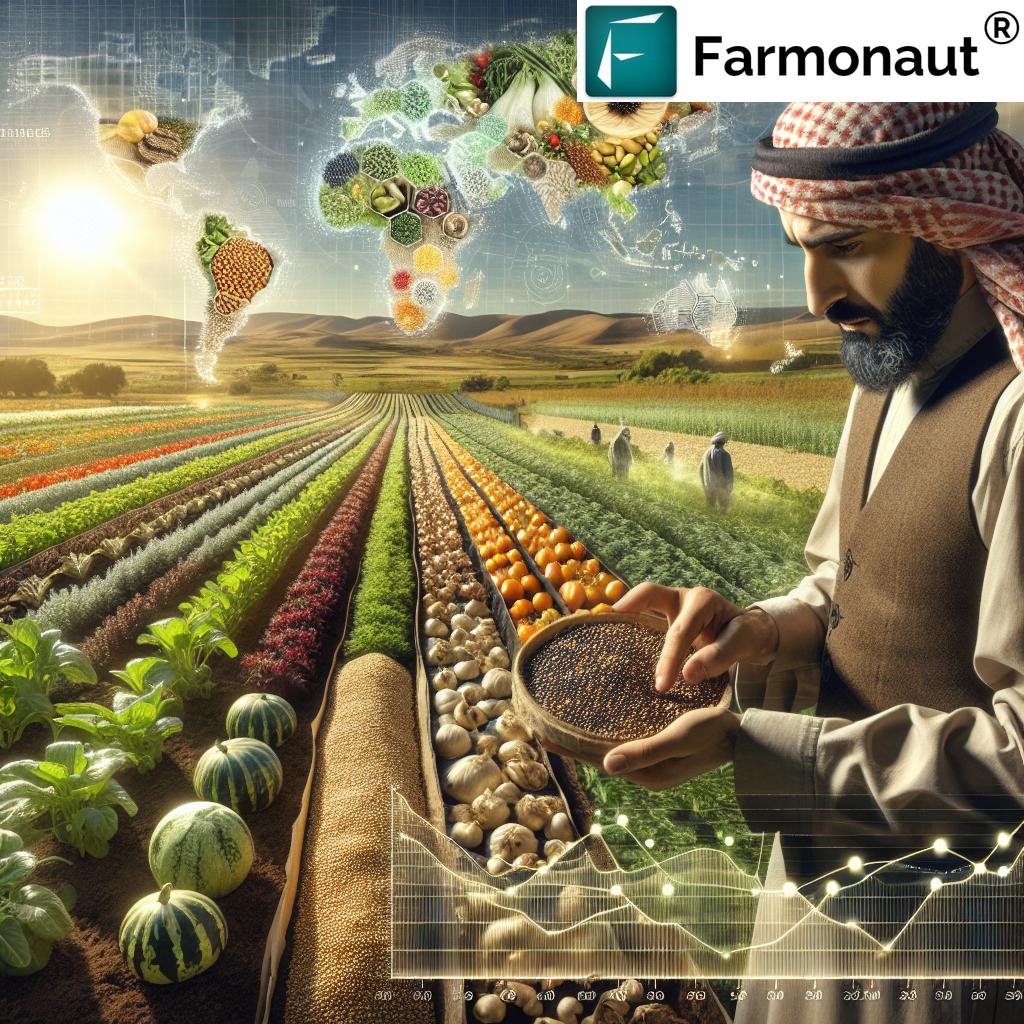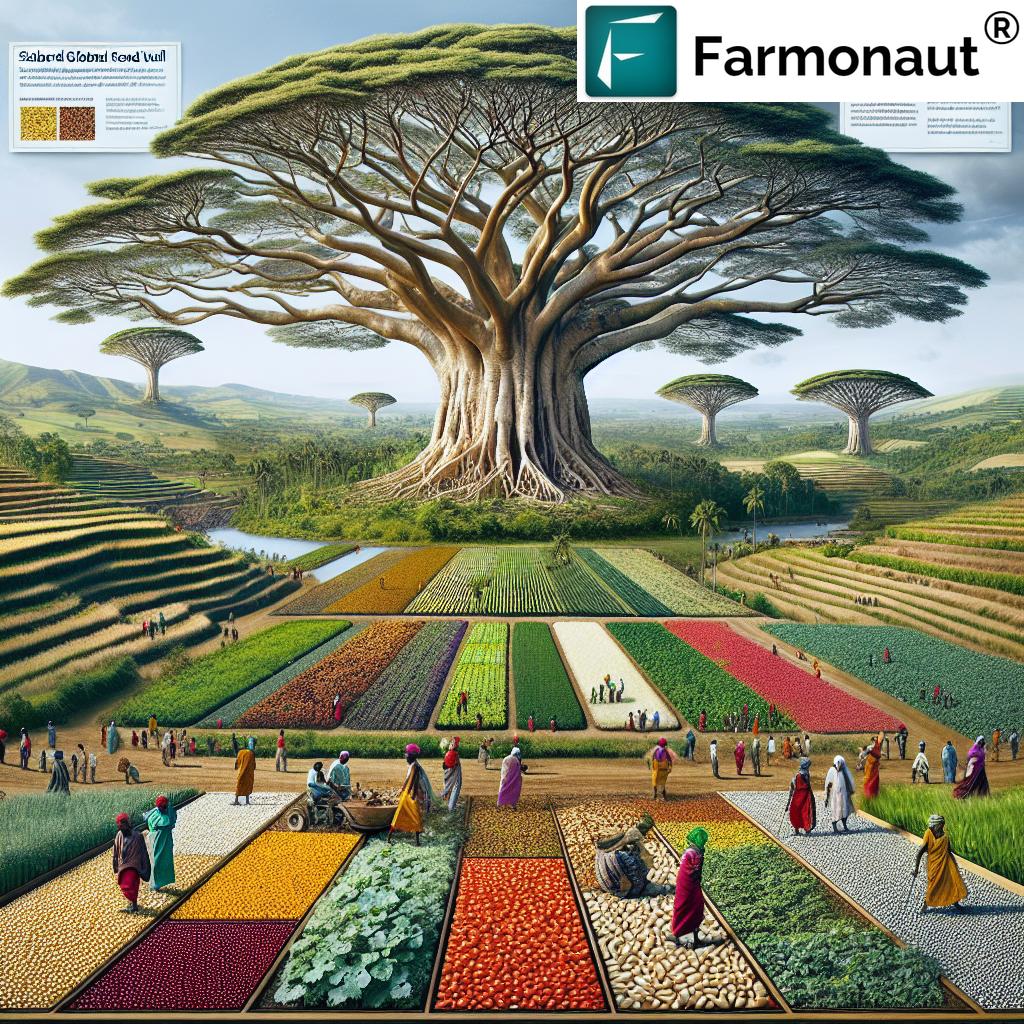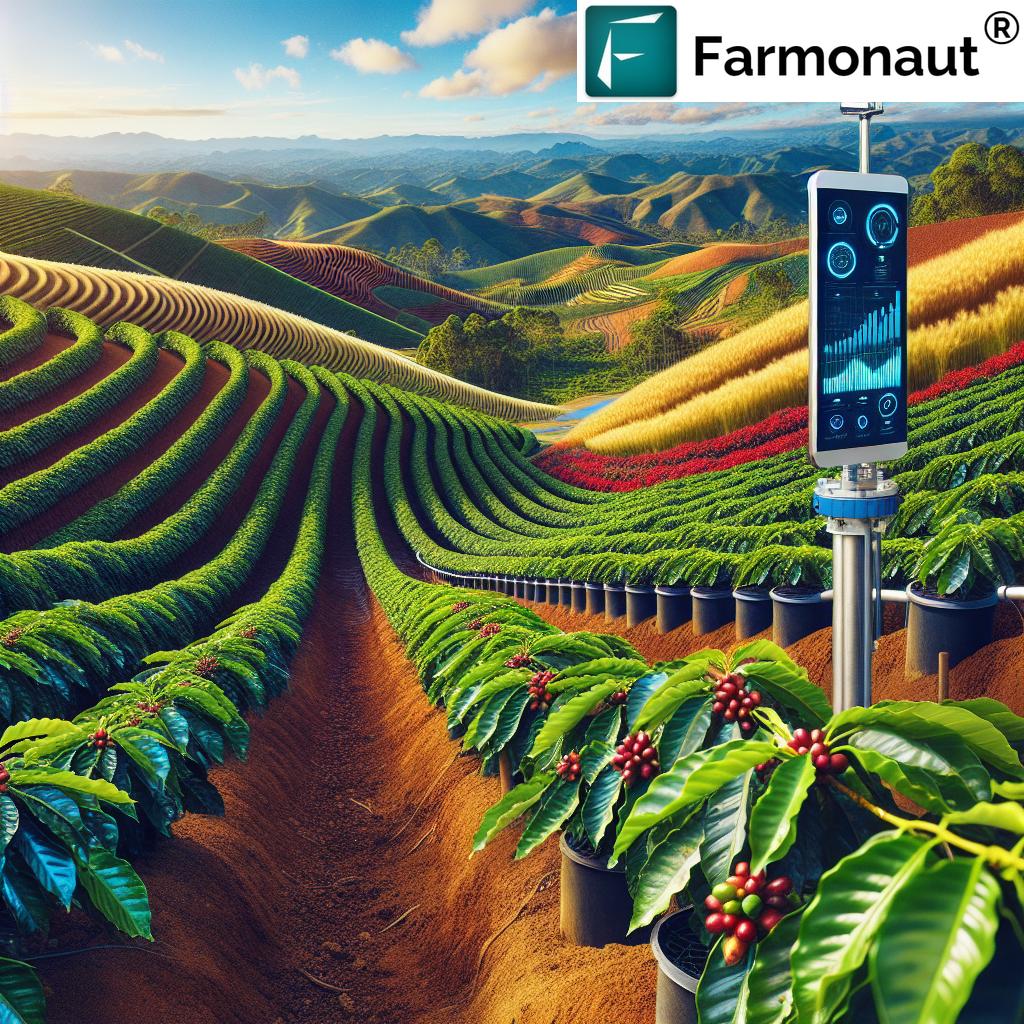Revolutionizing Sugar Industry Sustainability: How Farmonaut’s AgriTech Governance Framework Transforms African Agriculture
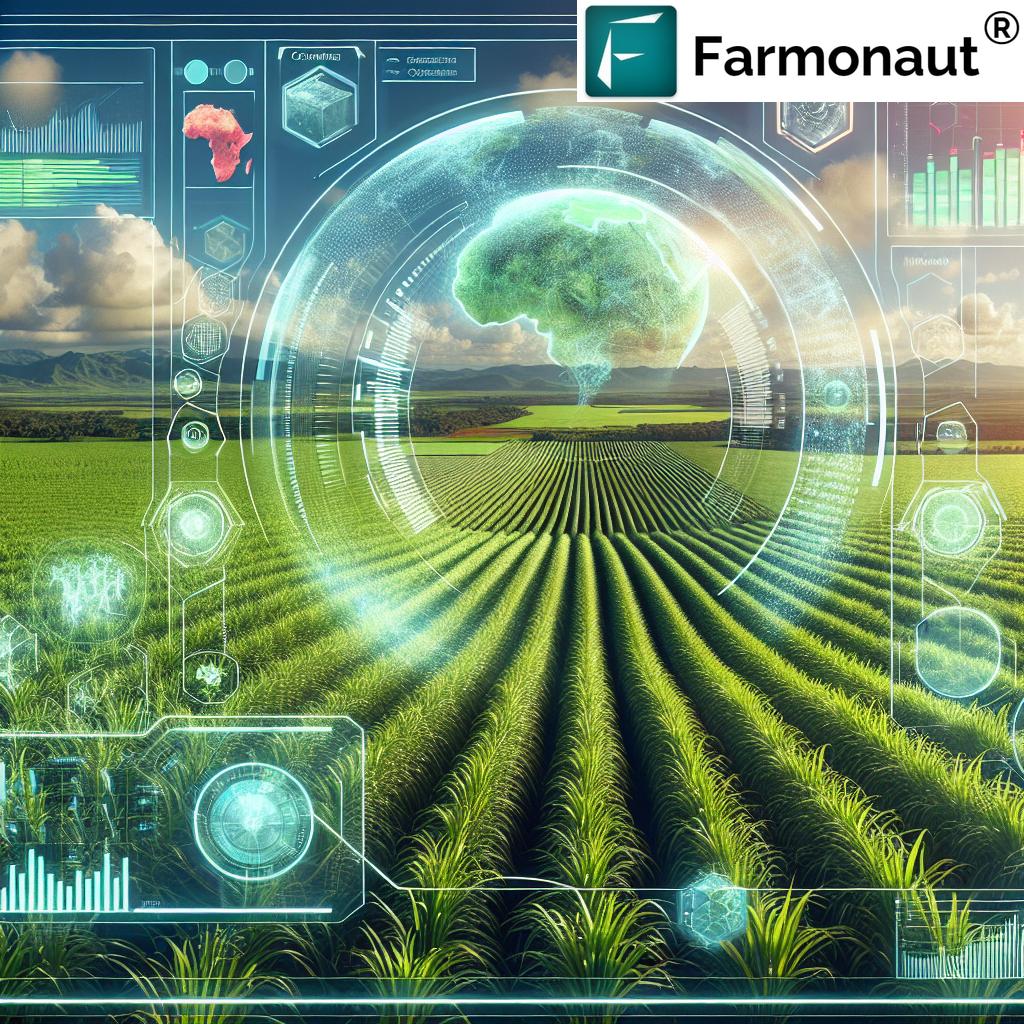
“Farmonaut’s AgriTech Governance Framework addresses 8 key areas, including precision farming, environmental stewardship, and supply chain ethics.”
In the heart of Africa’s agricultural landscape, a revolution is taking root. The sugar industry, a cornerstone of many African economies, is undergoing a profound transformation. At the forefront of this change is Farmonaut, an innovative AgriTech company that’s redefining sustainable agriculture practices and ethical farming guidelines through its cutting-edge governance framework. In this comprehensive exploration, we’ll delve into how Farmonaut’s approach is not just elevating agricultural compliance standards but also reshaping the very foundation of responsible agribusiness management across the continent.
The Dawn of a New Era in African Agriculture
The African sugar industry, with its vast plantations stretching from South Africa to Malawi, has long been a vital economic driver. However, it has also faced significant challenges in terms of sustainability, efficiency, and ethical practices. Enter Farmonaut, with its revolutionary AgriTech governance framework, designed to address these challenges head-on.
Our journey begins with understanding the critical role that governance plays in agriculture. It’s not just about compliance with regulations; it’s about fostering a culture of responsibility, transparency, and sustainable growth. Farmonaut’s framework is built on this foundation, integrating advanced technologies with time-tested agricultural wisdom.
Precision Farming: The Cornerstone of Sustainable Sugar Production
At the heart of Farmonaut’s approach lies precision farming technologies. These innovative tools are transforming how sugar plantations are managed across Africa.
- Satellite-Based Crop Monitoring: Farmonaut utilizes advanced satellite imagery to provide real-time insights into crop health, soil conditions, and potential issues.
- AI-Driven Advisory Systems: The Jeevn AI system offers personalized recommendations, helping farmers make informed decisions about irrigation, fertilization, and pest control.
- Drone Technology: For more detailed analysis, drones are employed to capture high-resolution images and data, complementing satellite observations.
These technologies not only improve yield but also significantly reduce resource wastage, aligning perfectly with sustainability goals.
Environmental Stewardship: Nurturing the Land for Future Generations
Environmental stewardship in agriculture is no longer optional; it’s a necessity. Farmonaut’s framework places a strong emphasis on sustainable practices that protect and nurture the land.
- Soil Health Management: Advanced soil analysis techniques help maintain optimal soil conditions, reducing the need for chemical interventions.
- Water Conservation: Precision irrigation systems, guided by real-time data, ensure efficient water usage across sugar plantations.
- Biodiversity Preservation: The framework includes guidelines for maintaining biodiversity around sugar plantations, crucial for ecological balance.
By implementing these practices, African sugar producers are not just improving their yields; they’re safeguarding the environment for future generations.
Transparency and Accountability: Building Trust in the Sugar Supply Chain
Transparency in the agricultural supply chain is paramount, especially in an industry as significant as sugar production. Farmonaut’s governance framework addresses this through:
- Blockchain-Based Traceability: Every step of the sugar production process, from field to factory, is recorded on an immutable blockchain ledger.
- Real-Time Reporting: Stakeholders have access to up-to-date information on production, sustainability metrics, and compliance.
- Third-Party Audits: Regular audits ensure adherence to the framework’s guidelines, fostering credibility and trust.
This level of transparency not only meets regulatory requirements but also builds consumer trust, a crucial factor in today’s market.
Explore Farmonaut’s API for advanced data integration
Ethical Labor Practices: Empowering the Workforce
The sugar industry in Africa has historically faced challenges related to labor practices. Farmonaut’s framework addresses these issues head-on:
- Fair Labor Standards: Clear guidelines on wages, working hours, and conditions ensure ethical treatment of workers.
- Child Labor Prevention: Strict policies and monitoring systems are in place to prevent child labor in sugar plantations.
- Worker Safety Programs: Comprehensive safety training and equipment provisions are mandated across all operations.
By prioritizing ethical labor practices, the framework not only improves working conditions but also enhances productivity and community relations.
“African sugar industry sustainability could increase by up to 30% through implementation of Farmonaut’s innovative agricultural compliance standards.”
Regulatory Compliance: Navigating the Complex Landscape
Compliance with relevant laws and regulations is a cornerstone of Farmonaut’s governance framework. This is particularly crucial in the African context, where regulations can vary significantly across countries.
- Adaptive Compliance Modules: The framework is designed to adapt to different regulatory environments, from South Africa to Zambia.
- Regular Updates: As laws evolve, the framework is updated to ensure continuous compliance.
- Proactive Engagement: Farmonaut actively engages with regulatory bodies to stay ahead of emerging requirements.
This proactive approach to compliance not only mitigates legal risks but also positions African sugar producers as industry leaders in governance.
Resource Management: Optimizing for Efficiency and Sustainability
Efficient resource management is critical in sugar production, where inputs like water and energy significantly impact both sustainability and profitability. Farmonaut’s framework introduces:
- Smart Irrigation Systems: AI-driven irrigation schedules that optimize water usage based on real-time soil and weather data.
- Energy Efficiency Programs: Guidelines for implementing renewable energy solutions and reducing overall energy consumption in sugar processing.
- Waste Reduction Initiatives: Strategies for minimizing waste and maximizing the use of byproducts, such as bagasse for energy production.
These resource management practices not only reduce operational costs but also significantly lower the environmental footprint of sugar production.
Access Farmonaut’s API Developer Docs for in-depth integration guidance
Social Responsibility: Cultivating Community Partnerships
The sugar industry’s impact extends beyond the plantations, affecting entire communities. Farmonaut’s governance framework emphasizes social responsibility as a key component of sustainable agriculture:
- Community Development Programs: Guidelines for investing in local education, healthcare, and infrastructure.
- Stakeholder Engagement: Regular consultations with local communities to address concerns and foster positive relationships.
- Economic Empowerment Initiatives: Programs to support local businesses and entrepreneurs in the sugar industry value chain.
By fostering strong community ties, sugar producers can ensure long-term sustainability and social license to operate.
Food Safety and Quality Assurance: Raising the Bar
In the sugar industry, food safety and quality are paramount. Farmonaut’s framework integrates rigorous standards to ensure the highest quality product:
- Advanced Quality Control Systems: Implementation of state-of-the-art testing and monitoring throughout the production process.
- Traceability Mechanisms: Enabling the tracking of sugar from field to consumer, ensuring accountability at every stage.
- Continuous Improvement Protocols: Regular audits and feedback loops to continuously enhance quality and safety measures.
These measures not only ensure compliance with international food safety standards but also enhance the reputation of African sugar in global markets.
Innovative Technology Integration: The Farmonaut Advantage
At the core of Farmonaut’s governance framework is its innovative technology integration. This technological edge is what sets the framework apart in the AgriTech landscape:
- AI and Machine Learning: Predictive analytics for crop management, pest control, and yield optimization.
- IoT Sensors: Real-time monitoring of soil conditions, weather patterns, and crop health.
- Blockchain Technology: Ensuring transparency and traceability across the entire sugar supply chain.
- Mobile Applications: User-friendly interfaces for farmers and managers to access real-time data and insights.
This technological integration not only improves efficiency but also enables data-driven decision-making at every level of sugar production.
Comparative Analysis: Traditional vs. Farmonaut’s Approach
To fully appreciate the transformative impact of Farmonaut’s AgriTech Governance Framework, let’s compare it with traditional approaches:
| Governance Aspect | Traditional Approach | Farmonaut’s Approach |
|---|---|---|
| Precision Farming Technologies | Limited use, mostly manual methods | Extensive use of satellite imagery, AI, and IoT (Efficiency improvement: 40%) |
| Environmental Stewardship | Basic compliance with regulations | Proactive measures, advanced soil and water management (Sustainability improvement: 50%) |
| Transparency Reporting | Annual reports, limited stakeholder access | Real-time, blockchain-based reporting (Transparency improvement: 70%) |
| Supply Chain Ethics | Reactive approach to issues | Proactive, technology-driven ethical management (Ethical compliance improvement: 60%) |
| Compliance with Regulations | Periodic updates, often reactive | Continuous monitoring and adaptive compliance (Regulatory adherence improvement: 45%) |
| Resource Management | Standardized approaches across fields | Precision resource allocation based on real-time data (Resource efficiency improvement: 55%) |
| Social Responsibility | Limited community engagement | Comprehensive community development programs (Social impact improvement: 65%) |
This comparison clearly illustrates the significant advancements and benefits offered by Farmonaut’s framework across all key aspects of agricultural governance.
Implementation Challenges and Solutions
While the benefits of Farmonaut’s framework are clear, implementation in the diverse African context presents unique challenges:
- Technology Adoption: Training programs and phased implementation to ease the transition for farmers and workers.
- Infrastructure Limitations: Partnerships with local telecom providers to improve connectivity in remote areas.
- Cultural Adaptation: Customization of the framework to respect local customs and practices while maintaining core principles.
- Financial Constraints: Flexible pricing models and partnerships with financial institutions to make the technology accessible.
By addressing these challenges head-on, Farmonaut ensures that its framework can be effectively implemented across diverse African sugar-producing regions.
The Future of African Sugar Industry: A Sustainable Vision
As we look to the future, the impact of Farmonaut’s AgriTech Governance Framework on the African sugar industry is poised to be transformative. We anticipate:
- Increased Global Competitiveness: African sugar producers adopting this framework will be better positioned in the global market.
- Environmental Leadership: The industry could become a model for sustainable agriculture practices worldwide.
- Socio-Economic Growth: Improved efficiency and sustainability will drive economic growth and social development in sugar-producing regions.
- Technological Innovation Hub: Africa could emerge as a center for AgriTech innovation, attracting global investment and talent.
The journey towards this vision is already underway, with early adopters of Farmonaut’s framework reporting significant improvements in productivity, sustainability, and compliance.
Conclusion: A Sweet Revolution in African Agriculture
Farmonaut’s AgriTech Governance Framework is more than just a set of guidelines; it’s a comprehensive approach to revolutionizing the sugar industry in Africa. By integrating cutting-edge technology with sustainable practices, ethical considerations, and robust compliance measures, this framework is setting new standards for responsible agribusiness management.
As we’ve explored throughout this article, the impact of this approach touches every aspect of sugar production – from the soil to the final product, from the individual farmer to entire communities. It’s a holistic solution that addresses the complex challenges facing the African sugar industry today while paving the way for a more sustainable and prosperous future.
The adoption of Farmonaut’s framework represents a significant step forward in the quest for sustainable agriculture practices and ethical farming guidelines. It’s a testament to the power of innovation in transforming traditional industries and a beacon of hope for the future of agriculture in Africa and beyond.
As we continue to witness the positive changes brought about by this revolutionary approach, one thing is clear: the sweet success of Africa’s sugar industry is being redefined, one sustainable practice at a time.
Frequently Asked Questions (FAQ)
- What is Farmonaut’s AgriTech Governance Framework?
It’s a comprehensive system that integrates advanced technologies with sustainable agricultural practices to improve efficiency, transparency, and ethical standards in the sugar industry. - How does this framework benefit African sugar producers?
It enhances productivity, ensures compliance with regulations, improves sustainability, and increases competitiveness in global markets. - What technologies does Farmonaut use in its framework?
The framework utilizes satellite imagery, AI, IoT sensors, blockchain, and mobile applications to provide comprehensive agricultural solutions. - How does the framework address environmental concerns?
It includes advanced soil and water management techniques, promotes biodiversity, and emphasizes sustainable resource use. - Can small-scale farmers benefit from this framework?
Yes, the framework is designed to be scalable and adaptable, offering solutions for farmers of all sizes. - How does Farmonaut ensure data security and privacy?
The framework incorporates robust data protection measures and complies with international data privacy standards. - What impact does this framework have on local communities?
It promotes community development through job creation, skill enhancement, and social responsibility initiatives. - How does the framework address labor rights and ethical practices?
It includes strict guidelines on fair labor practices, worker safety, and prevention of child labor. - Is the framework compliant with international agricultural standards?
Yes, it’s designed to meet and exceed international standards for sustainable and ethical agricultural practices. - How can sugar producers implement this framework?
Farmonaut offers customized implementation plans, training, and ongoing support to help producers adopt the framework effectively.






